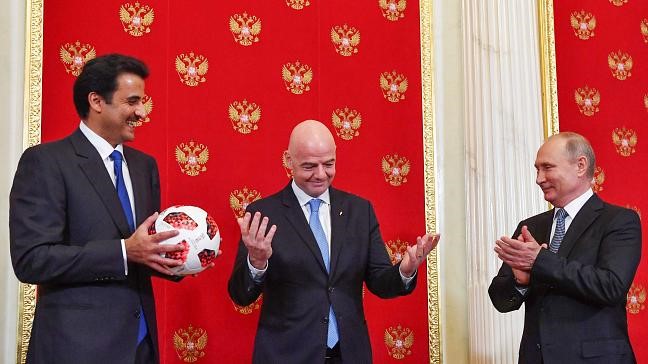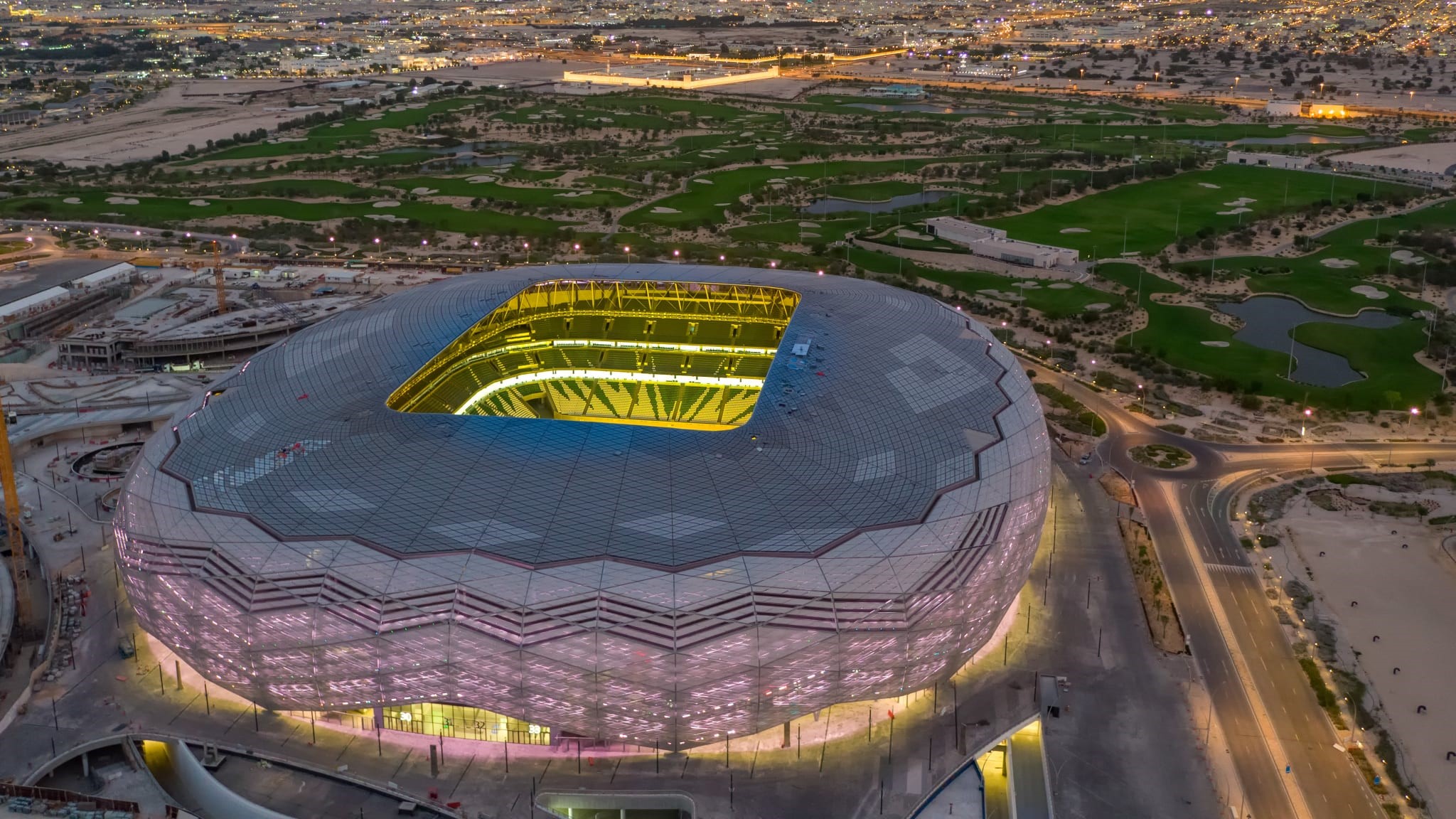by MA International Relations student Matthew Dare
*The views in the following article are the personal views of the author and are not an official position of the School.*
In this blog post, I will discuss the questionable means through which Qatar altered global perceptions, and the global impact on the future of the sports industry.
The 2022 FIFA World Cup in Qatar promises to be a sporting experience like no other. Awarded under suspicious circumstances by disgraced former FIFA President Sepp Blatter in 2010, its build-up has been less than smooth. Such is the Middle East’s incompatibility with elite sports that the tournament has been delayed until the winter for player welfare marking a significant break with tradition. The state has also faced criticism for its deployment of slaves and reliance on migrant workers. Despite this, Qatar remains undeterred in its quest to deliver the 2022 World Cup. This blog explores why that is and how it is endemic of Qatar’s foreign policy mission to rebrand and establish itself as a global superpower.
What is sports-washing?
‘A process where states attempt to improve their image through involvement in the world of sport’. Here the iconic image and global brand power of sporting clubs, nations, and competitions are hijacked to whitewash against a state’s existing poor image. This is problematic as it creates sinister ulterior motives for sport’s governing bodies. Deciding where to host a competition is no longer about who can promise the best tournament. Instead, it involves decisions on ethics and rights. Furthermore, these decisions often involve a great deal of corruption calling their legitimacy into question. In the case of football, the true nature of the ‘beautiful game’ must be called into question. Manchester City have managed to reach the summit European football with the help and finance of the Abu Dhabi United Group led by the Abu Dhabi royal family. This partnership has been mutually beneficial. Manchester City have achieved a decade of footballing success and have seen significant investment in the blue half of Manchester.
Meanwhile Abu Dhabi have achieved great exposure, managing to market the country and its assets and detract from its history of inequality and oppression. Manchester City’s rise has come from ‘dirty money’ and their successes should be questioned. This provides a stain on the nature of football as a fair and equal sporting contest. Sports-washing is therefore something to be concerned about. Sport cannot be a vehicle through which states hide their oppressive nature. Authorities should do their utmost to limit its impacts and prevent this from happening in the future.
Why are Qatar so involved in Western sporting practices?
Qatar is a state of immense wealth backed by the world’s third-largest natural gas and oil reserves. It boasts immense futuristic cities in the middle of some of the world’s harshest deserts such as its capital Doha. The UN classifies it as a country of ‘very high human development’ with an impressive HDI score. It also financed oppressed and minority groups during the Arab spring. Despite this, Qatar’s international standing is less than favourable.
The gulf state’s dramatic rise came at the cost of its migrant work force. It’s believed 90% of its workers are migrants, most of which are slaves. They come from countries such as Nepal and Bangladesh in efforts to escape poverty yet are subject to great exploitation. Qatar has since been found guilty of mass human rights abuses. They also have great gender inequality.
Women are subject to oppression and censorship on almost all matters. They are restricted by ‘male guardianship laws’ and punishments are often fatal. Access to health care and education are also limited and, in some cases, prohibited. This is frowned on by Western culture which has condemned Qatar and distanced itself from their regime.
Qatar’s bid to host the 2022 World Cup and 2030 Asian games are attempts to distract from this. Through hosting the World Cup, Qatar will become a global hub for the world’s biggest sporting tournament. It will attract thousands of fans, tourists and journalists and provide a significant economic boost. Hence, it is a prime opportunity for Qatar to market itself to the West. This would complete Qatar’s transition to a global superpower within the international community.
How successful will this approach be?
This is a risky strategy. Many poorly organised or unsuccessful global events have left host countries in difficult positions. The 1976 Olympics left Montreal in great financial ruin that outlived any beneficial legacy of the games. In truth however, Qatar’s sports-washing agenda is already working. The state has been subject to global exposure for a decade before the tournament has even begun. In this time its image has begun to change with more and more people associating the gulf state with the football rather than its human rights records. It’s benefited from lucrative sponsorship deals with FIFA and UEFA and has seen successful ‘feeder events’ such as the FIFA Club World Cup in 2019 and 2020.
References
Figures
[1] Euronews, 2018, Russia hands over World Cup mantle to Qatar, Euronews. Available from: https://www.euronews.com/2018/07/15/russia-hands-over-world-cup-mantle-to-qatar Accessed: 18/06/2021.
[2] FIFA.COM, 2021, Education City Stadium, Qatar, FIFA World Cup Qatar 2022, Available from: https://www.fifa.com/worldcup/photos/galleries/education-city-stadium-qatar#education-city-stadium-qatar-x3153 Accessed: 18/06/2021.
Hyperlinks
[1] Laughland O, 2017, FIFA Official took bribes to back Qatar’s 2022 World Cup bid, court hears, The Guardian, Available from: https://www.theguardian.com/football/2017/nov/14/fifa-bribery-corruption-trial-qatar-2022-world-cup Accessed: 18/06/2021.
[2] BBC Sport, 2013, World Cup 2022: FIFA taskforce to seek new dates for Tournaments, BBC Sport Football, Available from: https://www.bbc.co.uk/sport/football/24401699 Accessed: 18/06/2021.
[3] Ganji S K, 2018, Leveraging the World Cup: Mega Sporting Events, Human Rights Risk, and Worker Welfare Reform in Qatar, Journal on Migration and Human Security, Vol 4, Issue 4, p. 221-259.
[4] Zidan K, 2019, Sportswashing: how Saudi Arabia lobbies the US’s largest sports bodies, The Guardian, Available from: https://www.theguardian.com/sport/2019/sep/02/sportswashing-saudi-arabia-sports-mohammed-bin-salman Accessed: 18/06/2021
[5] Conway R, 2014, FIFA Corruption Report: Who is to blame and what happens now? BBC Sport, Available from: https://www.bbc.co.uk/sport/football/30042309 Accessed: 18/06/2021.
[6] Doward J, 2018, Amnesty criticise Manchester City over ‘Sportswashing’, The Guardian, Available from: https://www.theguardian.com/law/2018/nov/11/manchester-city-owners-accused-sportswashing-gulf-image Accessed: 18/06/2021.
[7] Hattenstone S, 2018, The UAE is trampling human rights, Man City must finally speak out, The Guardian, Available from: https://www.theguardian.com/commentisfree/2018/nov/23/uae-human-rights-man-city-jailing-british-academic Accessed: 18/06/2021.
[8] Jacobs H, 2015, How Qatar got so rich so fast, Business Insider, Available from: https://www.businessinsider.com/how-qatar-got-so-rich-so-fast-2015-5?r=US&IR=T Accessed: 18/06/2021.
[9] UN, 2021, Human Development Report, United Nations Development Programme, Available from: http://www.hdr.undp.org/en/countries/profiles/QAT Accessed: 18/06/2021.
[10] Pattisson P, 2013, Revealed: Qatar’s World Cup ‘Slaves’, Modern day slavery in focus, the Guardian, Available from: https://www.theguardian.com/world/2013/sep/25/revealed-qatars-world-cup-slaves Accessed: 18/06/2021.
[11] Grant H, 2021, ‘We’re treated as children’, Qatari women tell rights group, Rights and Freedom: Women’s rights and gender equality, The Guardian, Available from: https://www.theguardian.com/global-development/2021/mar/29/were-treated-as-children-qatari-women-tell-rights-group Accessed: 18/06/2021.
[12] Chalkey B, Essex S, 1999, Urban Development through hosting international events: a history of the Olympic games, Planning Perspectives, Vol 14, Issue 4, p. 369-394.
[13] Essex S, Chalkey B, 1999, Olympic Locations and Legacies: A study in Geography and Tourism, Pacific Tourism Review, Vol 3, Issue 1, p. 3-4.




Leave a Reply